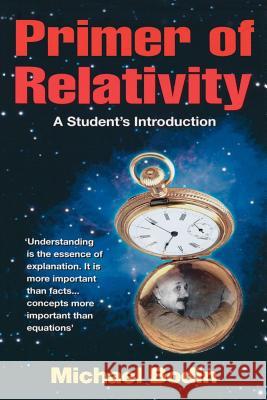Primer of Relativity: A Student's Introduction » książka
Primer of Relativity: A Student's Introduction
ISBN-13: 9781412090704 / Angielski / Miękka / 2006 / 424 str.
Describing Einstein's work is not easy. For such a diverse subject, 'difficult' is misleading, for it depends as much on the recipient as on the content, yet based on 'selective impressions' relativity has a daunting reputation, which deters many, and has gone unquestioned for years. This book takes a critical look at that image, and by ignoring the practical needs of professionals, places relativity in a very different perspective; harder parts are less common, but often matter least for general purposes; no knowledge of mathematics at all is necessary to fully understand what relativity says and means (contrary to popular belief), and on that basis, understanding Einstein should be within the grasp of every student interested to try, and with the motivation to succeed.
To achieve this aim, an approach has been adopted which places emphasis on meaning over content, with the ultimate objective that understanding is what matters most, rather than provision of facts and information. The book is aimed at a very wide range of potential readers, from complete novice to university level, with format and content material adapted accordingly. The general layout is modular, with topics classified under three categories of difficulty, to meet different levels of interest and aptitude, and these grades are identified in the contents section preceding each chapter.
Readers can thus customise their choice of reading, while cross referencing and frequent summaries facilitate moving between levels. Little mathematics is included in the text (and can all be skipped), but for advanced readers, a very full selection of equations (most with derivations from first principles) has been includedin a series of appendices which follow each chapter. An unusual feature is a chapter on cosmology, for those who wish to follow the logical consequences of general relativity. There is a very extensive glossary.











